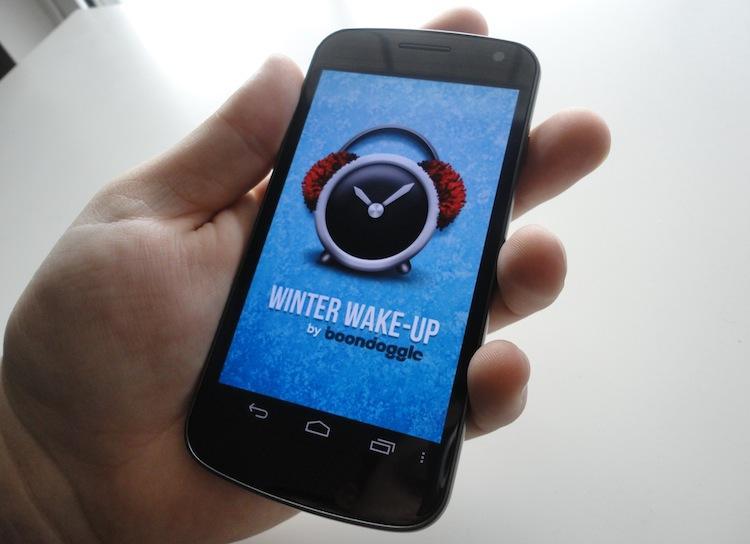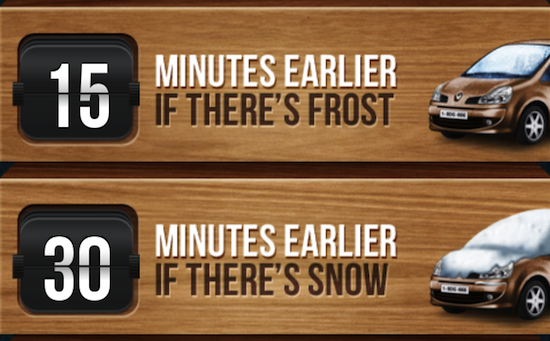
Smartphones have invaded our lives. So much so that we have a certain level of dependency on them; we rely on our phones to keep us connected at all times of the day and deliver all sorts of information to us on demand. When a network goes down, we feel as if we're hurled into the dark ages and as if someone committed an unforgivable crime against us. We've handed so much responsibility over to our smart devices, even letting them replace one of the most important tools in our morning routine, the device that starts it all: the alarm clock.
Using a cell phone as an alarm clock isn't anything new to any of us, I'm sure. I haven't owned a dedicated alarm clock since my freshman year in high school. Instead, I've relied on my countless mobile devices to wake me up. And it has always worked well – or as well as any other alarm clock would – until I get used to the same alarm sound every morning and my brain subconsciously tunes it out through several repeated alarms and I wake up a few hours later wondering why it never went off. But that's mostly my own fault for setting my alarm too early and going to bed way too late.
The added benefit of using your smartphone as an alarm clock, though, is that your phone has an always-on data connection. And because of that and a slew of crafty developers out there, what would normally be just another alarm clock app can be turned into something incredible.
This morning, I ran across an article on TUAW detailing a new application released just two weeks ago by Boondoggle, an advertising agency. Boondoggle ran into unforeseen winter weather last year which made it impossible for many to make it to work on time – if at all. So they sought to help people make it to work on time in the event that unexpected winter weather hits overnight with Winter Wake-up. Winter Wake-up, as you would expect, is an alarm clock app for both Android and iOS. But what does it have that no other alarm clock (at least to my knowledge) has? A unique feature that collects weather data while you're asleep. Based on that data, it will decide whether it should wake you up early based on your predetermined preferences.

Like any other alarm clock app, you set the alarm time for when you would normally want to wake up. Then, you set how much earlier (in minutes) that the app should sound the alarm if there is frost in your area. If there is snow, you can set the alarm to wake you up even earlier. And if the weather is too bad out, you can tell Winter Wake-up not to bother and opt to work on Saturday instead.
Now, take note that I haven't used Winter Wake-up yet, and I probably never will. For one, I work from home and while I have set alarms aplenty, formidable weather doesn't really affect how long it takes me to crawl from the bed to my desk when I wake up. Also, it has been abnormally warm in North Carolina this year. Highs have been in the 60s for weeks, when we should have already had a few inches of snow. Trust me, I'm not very happy without a little cold in my winter.
So while I may never actually use Winter Wake-up, it's the ingenious concept behind it that makes it so appealing. Why has no one thought to pair weather alerts with an alarm clock before? They've paired weather with the alarm clock to offer a digital reading of the date and current weather conditions to wake you instead of a repetitive sound that you will inevitably learn to ignore. But this is the first that I know of that will get you out of bed sooner based on weather that may make the commute to work a little more difficult.
Something as simple and niche as this, though, is only the beginning. For starters, Winter Wake-up could be much more than just snow and ice alerts – it isn't very feature-packed. There's not much argument against a free app, though. However, as smartphones and mobile apps evolve, developers will begin to pair weather alerts to anything and everything: a wardrobe app that tells you what to wear based on weather conditions, a travel app that tells you what to pack for where you're headed, a navigation service that reroutes you based on local weather and traffic reports. And it doesn't have to end with weather. The same can be done with anything that supplies real-time info based on your location.
It's not that this is a revolutionary turn for the future of smartphone software; it isn't. This is the direction we've been headed for some time now. Internet-based services can easily extend the basic functions of a smartphone, and that's the beauty of it all. It's just nice and refreshing to see a developer thinking outside the box and bringing two seemingly unrelated and simple services together to create an app that offers something you've been wanting and needing for years but never knew it.
Here's to hoping 2012 will bring more useful apps such as this, that make both the smartphone and everyday life that much easier to handle. That's what it's all about, right?
By the way, what kind of services would you like to see paired with the basic function of you phone? Weather, traffic and navigation? Google image search integrated into your phone's Gallery app? Get creative and use your imagination!